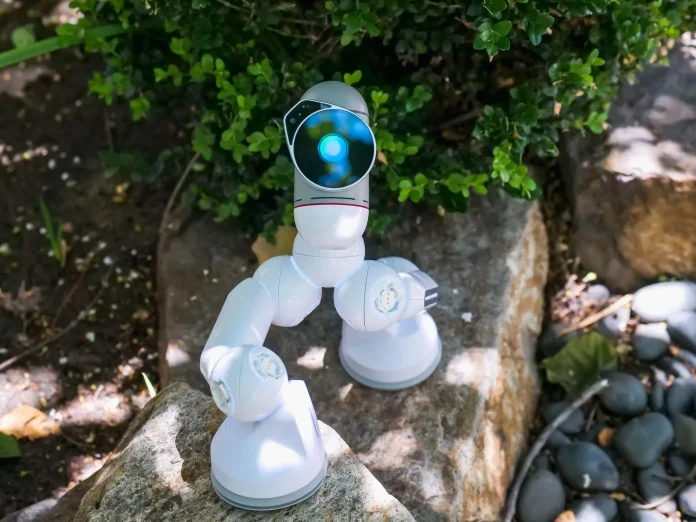Today, security technology is at the forefront of research and development in the use of Artificial Intelligence for physical security. Yet too often the security technology currently employed is still somewhat disconnected and cannot entirely respond to all security needs.
The future will mandate the need for centrally operated security systems that comprise both physical and digital security and predictive capabilities to prevent incidents. The pre-emptive intervention will be the goal. A lack of connection between security procedures and incomplete coverage of the environment continues to challenge both industry specialists and entities searching for security solutions. Artificial Intelligence is one technological instrument that can meet and integrate solutions for physical security.
Artificial Intelligence Technology
Artificial intelligence is a collection of tools that includes algorithms, advanced software, and machine hardware. This new technology has been developed to contain some learning abilities and to solve certain problems independently. The development of AI has been supersonic in speed, and many industries are now looking to adopt beneficial applications. Physical security is one of these industries with a particular interest in utilizing learning algorithms in connection with video surveillance.
AI is now used in tech devices as well as in cloud-based platforms, or a combination of the two. The physical security industry is expected to create technologies that will permit analytics on-camera. Systems will increasingly become more efficient, more agile, and above all, more rapid in identifying potential risks and preventing incidents through immediate intervention.
Past Physical Security Technology
In the past, each security protocol was operated independently as a separate procedure. Security operations were unable to be modified easily and quickly to meet evolving business needs. Each new addition cost more money and did not produce credible returns on investments made. They also did not collect data, making investigations of incidents costly and time-consuming.
A commercial enterprise might have installed video surveillance to record crimes, however, when law enforcement arrived on the scene, the thief and stolen goods or money had vanished. The viewing of surveillance data would need time and be, in many cases, extremely limited.
Today’s Physical Security Technology
Now, newer technology permits businesses to use cloud-based video surveillance and access management and employs some AI analytics. The future will demand that AI systems become increasingly more efficient not only to improve the use of available resources but to improve preemptive and reactionary responses to physical threats.
Consider if a perpetrator enters a business with a concealed weapon. Security technology currently exists for the identification of that weapon; however, time is lost when security personnel must perform a video review or other procedures. The human element is still required for responses. Unfortunately, in a case like this, the weapon may have already entered the premises by the time a security team informed occupants of the threat and placed a facility on lockdown.
The Future of Technology Security Includes Artificial Intelligence
AI analytics is the future of physical security technology. Programmed surveillance video will identify weapons and suspect behaviour and then respond automatically with access lockdown to impede entry. While doing so, law enforcement and security teams will be alerted of the imminent threat as well as management and facility occupants. The integration of Artificial Intelligence will limit if not eliminate the need for human intervention.
The new technology that uses AI will be geared toward predictive and preventive security operations with the introduction of robots and drones that operate automatically and independently. Security will be managed from a single system that integrates access control, video monitoring, sensors, and intercom systems for office buildings, together with machine intelligence operating in real-time to enhance security responses.
Technologies, where AI will make a difference in physical security, may include:
- Audio and Visual Detection
Capable of the detection of sounds like glass breaking or gunshots as well as random visual threats. This can alert security teams while triggering a lockdown.
- Drones
Air detection for quick deployment of security resources in the event of threats that personnel on the ground may not be aware of or able to see. Protection from unauthorized drones in a specific area.
- Facial Recognition and Matching
Potential use for health issues such as mask wearing. Identification of people of interest. Access denial for unauthorized persons and immediate alert system.
- Perimeter Search and Detection
Used for the detection of objects or vehicles lingering in the perimeter or entering an unauthorized zone. Identification of animals entering surrounding property.
- Person Search
Identify the location of people using live video or saved photos in a matter of minutes, especially in the event of an emergency.
- Robots
Evaluation of physical threats without human intervention, security inspections using sensors of temperature, gasses, humidity, air quality, etc. Audio alert system and the possibility to a video monitor blind spots in facilities.
- Traffic
Monitoring of traffic flow of employees and visitors within facilities, as well as communication between video monitors to prevent both pedestrian and vehicle accidents on the streets. Assist in facilitating the arrival of emergency vehicles when obstructed by traffic congestion.

Artificial Intelligence and the Future of Physical Security
Thanks to the integration of machine learning into cybersecurity as well as physical security necessities, security operations will improve and become more efficient. This will allow for more flexibility in terms of which security protocols are required for a specific business or location.
AI will also prove to be more cost-effective with an integrated approach to resource utilization, allowing security personnel to concentrate on threat response rather than monitoring. Intelligent, autonomous integrated security systems will contribute to safer work environments as well as entertainment and play areas.


